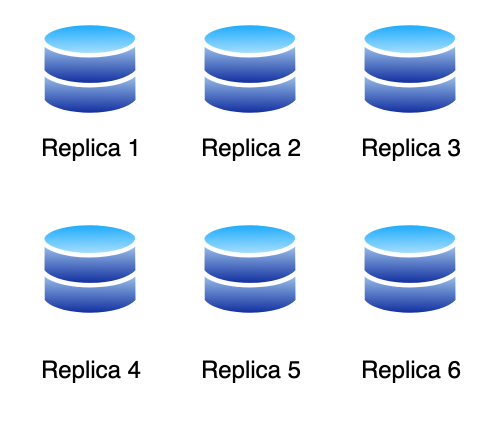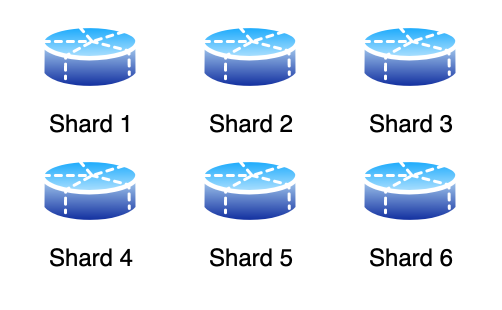Database Scaling

As our data refineries grow in size and complexity, the need for efficient database scaling techniques becomes paramount. In this post, we'll dive into the world of database scaling, exploring the intricacies of indexing, replication, and partitioning/sharding. These techniques are the unsung heroes that keep our digital services running smoothly, ensuring that the next time you click on a website, it loads with the speed of light.
Indexing
Imagine walking into a library where books are scattered everywhere. Finding the book you want would be a nightmare! That's what happens when a database lacks indexing and has to perform a full-table scan for every retrieval operation. As tables grow, this becomes a significant performance bottleneck, impacting user experience.

Indexing comes to the rescue by organizing data in a way that allows the database to locate desired records quickly, often in sub-linear time. Think of it as the library's catalog system, guiding you directly to the book you need. However, this convenience comes at a cost. Indexes require additional storage space and can slow down write operations, as each new entry needs to be indexed. It's a trade-off worth making for queries that are frequent and time-sensitive.

And it's not just a feature of traditional relational databases; NoSQL databases, like document stores, also extensively use indexing to speed up data retrieval, proving the versatility and importance of this technique.
Replication
Data replication is like having multiple copies of a book in different library branches. It ensures that if one copy is unavailable, you can still find another one elsewhere. In database terms, replication increases data availability and allows for distribution across regions, enhancing access speeds for users worldwide.

However, replication is a double-edged sword. Maintaining data integrity and consistency across multiple copies can be challenging, especially in the face of network issues or conflicting updates. Moreover, it requires extra storage space and resources to manage the replicated data.
Despite these challenges, database replication is a cornerstone of modern database systems, with most NoSQL databases incorporating it out-of-the-box and relational databases offering varying degrees of support. It's a testament to replication's critical role in ensuring data availability and resilience.
Partitioning/Sharding
When a database becomes too large to handle efficiently as a single unit, it's time to break it down into more manageable pieces through partitioning or sharding. This approach turns a monolithic database into a distributed one, where different queries can run in parallel, significantly improving performance and scalability.

NoSQL databases often come with built-in support for sharding, as their records are natively decoupled from each other, making it easier to distribute data across multiple nodes. On the other hand, relational databases face more challenges with sharding due to the interconnected nature of their data. Queries involving multiple records or spanning across tables are more common, making it difficult to spread data across shards without compromising query performance.
Conclusion
Indexing, replication, and partitioning/sharding are not mutually exclusive but rather complementary techniques in the database scaling toolkit. In most real-life large-scale systems, these methods are employed in tandem, each playing its unique role in ensuring that databases can handle the ever-growing demands of the digital world.
As we wrap up this exploration of database scaling, it's clear that mastering these techniques is essential for any system designer or database administrator looking to build resilient, high-performing digital services. So the next time you enjoy a seamless online experience, remember the unsung heroes of database scaling working tirelessly behind the scenes.